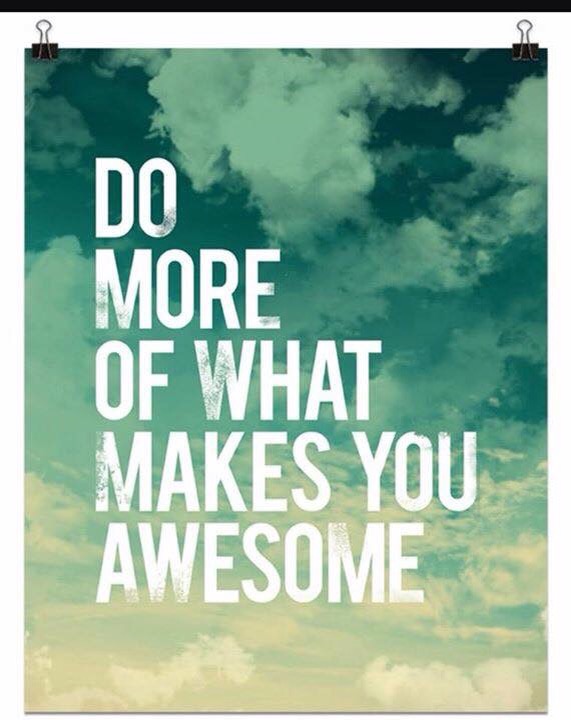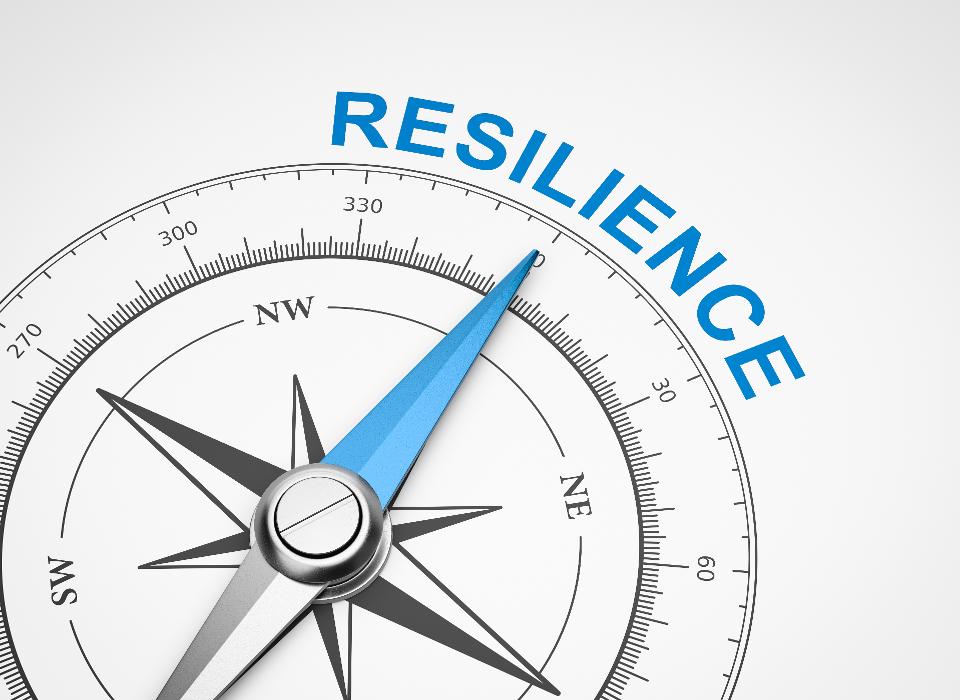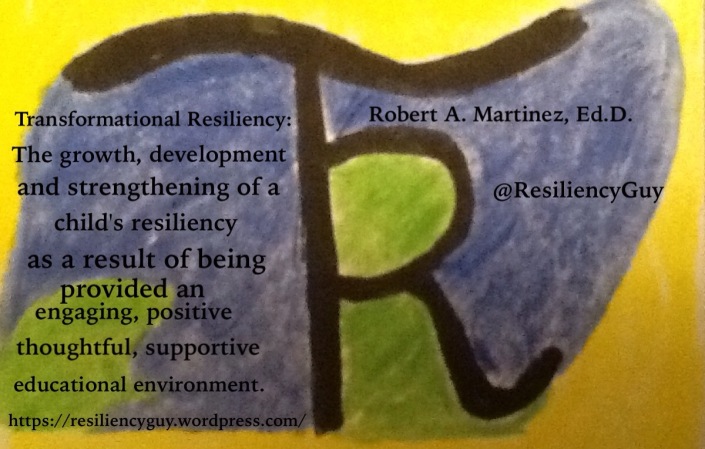Education
Connect, Appreciate, and Build a Sustainable Transformation
Connect, Appreciate and Build a Sustainable Transformation

Connecting: When we connect, even for a moment, we demonstrate the ability to build relationship, be human, show love, and to build a community.
When we connect with those in our environments we take the first step in demonstrating to them that we care, that they matter, and that we believe in the value of them as a person with individuality, ideas, and thoughts that matter to us. We tell them that not only do we care about them, but they have a place in our world, and in our collective reality. Whether this connection is a simple acknowledgment, a wink and a nod, a brief conversation, or a heartfelt hello, we must strive to ensure that we are making these connections.
Think about it, in your world, when people take that moment to actually connect to you do you feel more alive. I think that as we go through our busy days, we often become so consumed eith our internal thoughts, our minds focused on problem solving, and with gathering information from our technological devices, that we sometimes forget to recognize that others are seeking to connect with us. For example, as I was ruminating over my day’s work, driving home, stopped at a stoplight, with the news radio blarring at me, I happened to look to my left.
It took just a few seconds, and yet there she was. An elderly African American woman I didn’t know, sitting in the passenger seat of the car to my left. She smiled, gave me a little wave with her small right hand, and nodded to me. It was no more than a few fingers being lifted to let me know that she saw me, and that smile and nod refocused me into realizing that my work-day, though long, filled with the troubles of others, and with complex problems with solutions that were hopefully on their way, was actually not that bad at all. She let me know that she saw me, she connected with me, she ackknowledged my exsistence, and I was grateful.
Appreciation: If we miss a moment to show appreciation, we miss an opportunity to potentially change the world! Don’t miss those moments!
Do moments in your day seem to fly by in clusters where you move from cluster to cluster without recognizing the efforts of others? For me it happens all too often, and I want to be better at recognizing the efforts of others, then in demonstrating appreciation for the efforts of others. This will take a conscious deliberate effort in seeking to notice these efforts, and a purposeful response to demonstrate that I’ve noticed, and appreciated those efforts. Please consider joining me in these efforts.
It could be as simple as saying, “Thank You.” It could be as simple as writing a post-it-note with a smile on it, and leaving it in a conspicuous place for the person to find, or it could be a brief email, text, snapchat, tag in a twitter post, or any other entry into the technological stream that the person swims, to let them know that you noticed, and appreciated their efforts. The venue isn’t the important thing, it’s ensuring that the person that you want to demonstrate appreciation for realizes that you care, you noticed, you appreciate them, and that you are not taking for granted their efforts.
Our world today is moving so fast, and yet, it is these moments that are so important to us as people, and it is these moments that could actually make an impact on our personal story, the story of the people in our world, and the broader world in general. Consider how your reality might change if you offered more appreciation to others. Could you ingnite a new way of acting with people in your reality? Could this new way of acting spread to those people, and their realities? Could we, as some have said, actually change the world by initiating a “Chain of Appreciation” that links us all together? What if we could? Why wouldn’t we?
Building a Sustainable Transformation: This takes ideas, dedication, and follow through! #Resilience #EachPersonMatters
To change the world is no easy feat, and yet, what could be more meaningful? So to those that actually dare to take on this challenge with me, I say, “Welcome, to wherever you are,” and “Let’s travel this journey together.” Whether you are a teacher, an educator, a person who cares about others, or the head of a major corporation, it just doesn’t matter, since no matter who you are, you do have the ability to change your world, impact the world of the people within your world, and quite possibly, change the entire world.
You simply need ideas that you believe in, dedication to initiate a change in your own behavior, and perserverance to follow through on your own behavior. In addition, if you create opportunities for others in your world to follow your example, and set expectations for those in your world that will lead to them supporting your ideas, then your goals become closer to your reach.
As this blog suggests, if you seek to increase your personal connections with others at every opportunity, if you begin to increase your appreciation for others that you are connecting with, you will be taking significant steps to build a sustainable transformation in your world, that can, and will, impact those in your world, and quite possibly ignite a change to our collective world. I ask again, What if we could? Why wouldn’t we?
Peace, Rob Martinez, Ed.D.
Dr. Martinez, strives to empower adults to build environments for children where they can “Grow in Peace. He can also be found on twitter as @ResiliencyGuy and @DrRobM_FSUSD
Dr. Martinez will be presenting at the American Associationi of School Personnel Administrators Conference, “Human Capital Leadership Summit” in Monterey, California, on December 3, 2015, and at the “National Conference on Resilience in Education” in Las Vegas, Nevada, the weekend of December 5-6, 2015.
Tale of Two Types of Teachers
Image Posted on Updated on
Tale of Two Types of Teachers: One Brings Forth Transformational Resiliency, the Other Threatens Students Success-Time to Choose!
My dear fellow educators, parents, people who care about children, and supporters of a better world, let me first say clearly, each and every child you know needs your support, care, love and understanding. I further believe that each child you know is entitled to an educational environment where they are encouraged to grow in peace, able to stretch their thinking, advance their skills, build a healthy psyche, and become college, career, and community ready!
Quite simply, each child is entitled to learn in an environment that focuses on building Transformational Resiliency, and one where a child’s success is never threatened.
Unfortunately, in some of our schools today I must confess that there continues to exist some adults whose talents and skills do not focus on providing support, care, love, understanding, empathy, and growth mindset models to children. Instead, they hold a mis-guided belief that the tactics of fear, intimidation, power, control, shame, and punishment are effective strategies for keeping children in their place, quiet, compliant, and focused on solely outdated academic pursuits as defined by these mis-guided individuals. Hold for a moment while I gasp along with you, and shake my head at the reality that some of these adult individiuals are mis-guided teachers who desperately need our intervention!
I’d love to tell you that this is a myth, and yet, to my dismay, I have heard words from some teachers’ mouths directly to my ears, that describe situations that could only lead to frustration and negative success for many students. Some of these statements sound like: “We must lay down the law…we must convince them (students) that we are in control…we must demand that they respect us…we must be sure that they know the consequences of their actions…we must force them to behave…we must suspend them at the slightest misdeed…we must never let them see our weakness!”
While some people might seek to understand these statements, and some might even agree that each classroom needs order, that children must be provided parameters within classrooms, and that when there is no order chaos could derail many a classroom, the underlying premise of these statements is one of intimidation and fear, which is by no way a means to an end where children are involved. It saddens me that these feelings might reside in anyone.
This is a sad fact that there are those in positions of power, including some teachers, that seek to control students. Further, where these sentiments exist there may be a push by some to garner support, and replicate these thoughts. It is worrisome when a veteran teacher with such beliefs, who thinks that it is their duty to share their “wisdom” with new teachers to ensure compliance of students across their school, is the main voice on a campus without discourse occurring. I must say this practice of passing of knowledge, this training of the newbies, this approach to control, domination, depowerment, has no place in our schools, has no place in the raising of children, has no place in the growth mind-set that is needed to support our children. Further, these tactics especially have no place where children have experienced trauma, pain, discrimination, and disparate treatment from their community, and these children need emotional nourishment, not emotional neglect. In fact, the complete opposite is needed for children to grow in peace.
Now, rest assured, that situations are not like this everywhere, and know that a growing proportion of educators are striving, pushing, leading other educators to understand that the first and foremost important factor that will combat this approach is to first be a person, a human being, and to allow our children to know that we are humans with true interest in developing relationships with them as people. These healthy relationships are so needed across our educational institutions, and are indeed an avenue to save children, and in turn save ourselves. When educators seek to provide positive educational environments, where the resilience development of children becomes one of the prevailing factors of the work, and where adults are consciously aware that they matter in the lives of children, extremely positive outcomes are possible. This paramount priority of building relationships must be at the forefront of an educator’s mission on a daily basis for real and true growth of children to occur.
In many of the conversations that I have had with such educators I have heard words of inspiration, words that are filled with encouragement, words that are supportive, demonstrate love and care, and words that can indeed lead to the enhancement of positivity and quite possibly change the world. Some of these words include: “We must seek to understand each child that enters our classrooms…we must strive to build relationships, and be human beings…we must help our children develop their internal locus of control…we must create respectful environments where each child can give and get from their community…we must provide opportunities for children to see their futures, to build capacities they never imagined, and to learn how to support each other…we must seek to heal children…we must seek to forgive children…we must seek to restore justice to our classrooms, schools, communities so that children learn to understand the power they hold in their lives…we must strive to empower children, all children, each child, to be ready for the future they can, and can’t see!” Then as believers of education we must inspire those that are doing this important work with our children each day to continue, and to bring their colleagues with them to create a positive tipping point for each school!
When I hear these positive statements from teachers I am inspired. When I see these types of positive strategies and behaviors being implemented I am enthralled. When I hear groups of teachers engaged in discourse that is focused on building relationship with and among students in classrooms, hallways, quads, schools that are providing environments that are empowering children to be safe, build positive relationships, learn how to trust our educational institution, and to use the resources provided to them to grow themselves and each other, I am humbled to be an educator. And, my dear colleagues, it is happening. It is happening due to the strength of individuals, the courage of educators, the resiliency of children, the implementation of professional development that encourages and educates teachers about their power to truly change lives through making connections with children, and by not thretening a child’s success.
It is happening in more and more classrooms and schools. Teachers and educators are learning how to “Capture Kids Hearts.” Teachers and educators are helping children to “Be The Change.” Teachers and educators are striving to support children with understanding “Rachel’s Challenge,” and to initiate a chain of kindness. Teachers and educators are fostering healthy conversations. Teachers and educators are encouraging restorative justice practices. Teachers and educators are understanding that it is with support, love, caring, and focusing on the betterment of children that real change occurs, and that by dismissing the old myths that we gain something by controlling children is a practice that has reached far beyond its shelf-life.
Teachers and educators are building classrooms and schools where social-contracts are the rule, not the rarity. Teachers and educators are understanding that the power of positive mental health instruction and social-emotional learning curriculums are a priority for each classroom. Teachers and educators are empowering each other to create environments where Transformational-Resiliency practices are flourishing. Teachers and educators are rebuking the false promises out-dated strategies that seek to control children, and are replacing them with strategies that are nuturing and nourishing students.
If you have stayed with me through this writing you have probably picked up that I hold quite an internal passion for this topic. Yes, my wife and I have four boys, and one with some significant difficulties simply attending school, and each and every time I hear someone speak of the need to control studentes I cringe, I gasp, my heart races, and my blood begins to boil. I am seriously concerned for my son experiencing anyone who might wish to threaten his success, and I pray that each educator that he may meet over the remainder of his education will be someone who will seek to employ Transformational-Resiliency practices to encourage his success.
I ask you, in your work, in your life, in your role, if you hear any educator speak of the need to control students, please challenge their ideas, tell them that you are sorry for their perception and experiences that might have led them to this perspective, and explain to them that there is another way, a better way, a way of engaging students through practices that focus on kindness, care, compassion, empathy, and relationship building. Tell them that they have time to change, that the children they work with each day deserve the best they have to offer, not just the control they want to implement, and quite frankly it might be time to tell them that if they cannot choose to change, they might want to choose to leave. Our children deserve only the best!
Tell them about Transformational Resiliency: The growth, development and strengthening of a child’s personal resiliency as a result of being provided an engaging, positive, thoughful, supportive educational environment.
Peace, Robert A. Martinez, Ed.D.
@ResiliencyGuy @DrRobM_FSUSD https://resiliencyguy.wordpress.com/
“Building the Resiliency of At-Risk Students”-Transformational Resiliency in Action
Link Posted on Updated on
“Building the Resiliency of At-Risk Students”
This last year I was honored to be asked to participate in a Post-Graduate Fellowship Program. A strategic partnership was formed with Drexel University and the California School Board Association (CSBA), and I worked with the CSBA Leaders over the last year to support changes to the education and training of members of the CSBA. Further, as part of the fellowship I wrote the following Governance Brief that has now been published by the CSBA.
I often write of the critical importance of each person, and the important and powerful changes to our world that can be initiated by just one person. Some have called this the ripple effect, or string theory, and I like to think of this process as an essential part of our lives that actually empowers both the initiator of a change, and those that the change positively affects.
This Governance Brief was written to support the over 5000 members of the California School Boards Association as they continue their important work of creating change within all of our schools in California. As members of multiple governance teams, each one of them has the power to become the initiator of change, the igniter of a new idea, and the person who might ask the question that will bring a new focus to the issues of positive mental health instruction in their district, and in turn could powerfully impact the lives of the hundreds, or thousands of students, that they have the due diligence to support. In this brief I further describe the concept of “Transformational Resiliency,” and present a few examples of schools where this process is taking root and supporting some of the neediest, grittiest students in our community.
The brief is also written as an educational resource and tool for those that are considering the importance of resiliency development for students, and hopes to inspire all who read it to take action. Take thoughtful, purposeful action to create environments where students are able to prosper, and “Grow in Peace.”
Here is the link: Please share this far and wide! It matters for all of our students.
You can also follow me @ResiliencyGuy and @DrRobM_FSUSD on twitter
#Resiliency-You Matter! You Make a Difference! You are Essential!
Image Posted on
@Resiliency #Resiliency
You matter! You make a difference! You bring the world to those you love! You are an essential person! Never underestimate this!
You matter! Is it hard to believe that you make a difference? Is it difficult to accept the idea that as a unique person your impact on the world should not be understated? Have you accepted the plain truth that those that you come into contact every day are significantly changed by your presence, your demeanor, your attitude, your actions, deeds, follow-through, words, care, compassion, truthfulness, and love towards them. As a unique person your imprint on the world that you live in is simply the most amazing thing to behold. We often consider the unique fingerprints that we leave on the world, yet we forget that our entire being is actually leaving an imprint on our collective world that we exist within, and that we can actually control what that imprint imparts onto this world. When you think about it in this manner how might you focus your energies to realize a powerful, positive lifeprint?
You make a difference! To those that engage in your world you may quite frankly be the most important person in their day, either in a positive or negative manner. When you interacted, did you smile, did you greet them, did you nod your head, did you grunt, did you use words to acknowledge them, did you engage in meaningful conversation? How you approach the world is your purposeful offering to each day. You can choose to remain cloistered within yourself, or you can choose to seek out new experiences, entice new perspectives, and gain a new understanding and compassion for the world, the choice is yours. The difference we make comes from our willingness to engage, to be a part, to seek to be a multiplier in our world, rather than to be a negative force, and pull energy out of the relationships we could have. When you approach the world from a perspective of engagement, connectedness, and with a desire to provide support and love to those in your world you add so much to the world that you cannot simply quantify your true impact on the lives of others.
You bring the world to those you love! You might believe that those you love and those who love you may be an exclusive group that belongs to each other, yet, when I speak of love in this general term, you may be loved by an extensive group of people that you don’t consider loving each moment of each day. If you are a teacher, you may be loved by students. If you are a boss, you may be loved by your employees. If you are a worker, you may be loved by your boss, you get the point. There are those in our worlds that might actually care about you and your existence, and what you do on a day to day basis impacts them, even if you don’t believe this to be true. This connectedness is how our world works, and as such your world can and does enter into the world of those within your circle of influence. So, be aware, be conscious, be resolved to bring a positive world to those you love!
You are an essential person! It might seem obvious to many, however I have spoken with many grown adults who work with children, and there are those that have not accepted this type of thinking. In fact, you might be surprised at the number of people that don’t necessarily believe this statement. You are an essential person! Could it be that so many adults have endured their own trauma in their lives that even though they were able to make it through adolescence, college, and even start a career, that deep within them lurks a hurt child that may need to be healed? You are an essential person! It is important to understand that as those who serve we need to be mindful of our own inner thinkings, and work to be healthy oursleves in order to promote positive health for others. Recognize this, seek to ensure you believe you are essential, and continue your journey to help others.
Never underestimate this! You matter! You make a difference! You bring the world to those you love! It has been said that to overcome adversity takes resiliency. I would argue that from a research perspective, cognitive, and an emotional perspective that resiliency development can and should be fostered in each classroom, each school, each educational community, and to our broader communities. Further, this type of approach is not found hidden within the creases of a book, but in the true action of people just like you and I who come to realize that we matter, that we can empower others, and that our being here is a matter of great importance to the betterment of the world.
I hope some of these words impact you in a positve way, empower you to act to be more in tune with your world, and to engage through connectedness to those in your world, because why? Say it with me, YOU MATTER!
Plase continue to help children to “Grow in Peace!”
@ResiliencyGuy @DrRobM_FSUSD
Transformational Resiliency and Grit! Conceptual Foundation!
Video Posted on
In this brief video I offer a definition of Transformational Resiliency, outline a few of the issues that have ignited this passion to bring this message to the masses, and offer to you the conceptual foundation to an idea that I believe will assist those that seek to educate our children on many different levels. Further I being some inspiration to persevere in your efforts to improve environments for all of our children. I hope you view this, and that you are inspired to continue your efforts to build environments for children that support the idea of Transformational Resiliency.
Building Relationships and the Resiliency Development Connection
Image Posted on Updated on
Each person is the most important person in the world!
It is personal: Building relationships is absolutely a personal endeavor, and builds resiliency skills in others!
It’s life, it’s personal, It’s about relationships, it’s so important!
Life is messy, we are not perfect, yet we are human, which makes us persons, which means that everything that we do is personal. We may think that we stand alone, yet even when we consider ourselves to be detached from a situation, like it or not, we are connected to the world.
We are in relationships by choice, by chance, and by acquaintance. We are actually in a number of relationships that we might not even realize. If you have children, if you have students, if you are a boss, or an employee, if you are in some kind of relationship that involves love, desire and passion, if you used to be in a relationship, guess what, you are part of the world, people count on you, you are important, and these people you connect with or don’t are important to you. You are a person! You belong to the world, and the world belongs to you.
As you ponder this further, consider that each person, yes, each person, is the most important person in the world, and each person that you meet, greet, and welcome into your life stream deserves your best efforts in connecting with them, and in your desire to strive to build a relationship with them that is based on dignity, respect, equity, trust, support, guidance, and dare I say love. Building and maintaining meaningful relationships is one of the most important assets that any of us can add to our personal skills.
We, each of us, holds an immeasurable ability to convey positive healthy emotions to others, yet to do so in healthy ways, we must first understand the importance of each opportunity to build these healthy relationships, and we must be conscious in our thoughts and actions, and purposeful in our desire to meet others where they are in order to connect. We must then act with purposeful intent to move the relationship forward. As I mentioned this is messy work. It can seem overwhelming and even a bit over-burdening to consider the importance that you have in so many lives, and yet, if you are an educator, as many of my readers are, you simply hold one of the most important roles there could ever be, that is to connect with your students to support their positive development and foster the development of their latent resiliency.
Connect with students via communication. Connect by finding out their interests. Connect with them by listening, understanding them, hearing about their families, learning what makes them tick, grasping that as individuals they each have unique ideas, feelings, perceptions of the world, goals, and difficulties that they have overcome, are enduring, or have yet to face. Connect with your students by showing them the stepping stones across the garden, the safe spots to cross the river, and by teaching them and preparing them for the next adversity that may come their way. These moments are essential to positive growth and development and each of these moments cannot be under-valued in crafting each positive relationship.
Yes, it is true, each of us is moving so fast, at seemingly lightning speed, from one activity to the next, from one situation to the next, from one text to another, through social networking sites, back through our tweets, and we often forget, that the most important people that we have ignored during our days, truly need us the most.
So, what to do? Well, stop, reflect, consider those around you, and realize that as people, the strongest of us has more than likely suffered significant losses, struggles, overcome severe trauma, and have developed a tremendous wealth of resources that we can share with others. Each of us to some degree can make a positive impact if we choose to do so. Each of us can add to the collective betterment of our world if we choose to do so. Each of us has the ability to connect with those in our world to make a positive difference. Will we? I hope so, because I believe that each person is the most important person in the world. How about you?
Robert A. Martinez, Ed. D.
#Resiliency, #Transformational-Resiliency, #Education,
@ResiliencyGuy @DrRobM_FSUSD
Thinking About the Grit-Transformational Resiliency Connection
As a lifelong educator, researcher on resiliency development, empowerer of humans, and believer in the power of resiliency, I sugest that when we speak of “Grit” we must consider that it is our collective responsibility to strive at all levels of our educational communities to provide environments for students that are calm, supportive, encouraging, thoughtful, and planned, which provide opportunities for students to ignite their latent capabilities to be resilient.
I have begun to bring forth the conceptual idea of “Transformational Resiliency” which denotes just this, a purposefully designed environment where students are afforded the opportunities to be resilient, develop responsibility, and build positive relationships with others. When we as educators come to understand that it is a moral imperative to provide students with such environments we have taken the first step towards transforming each teaching opportunity. When we decide that it is important for us to expect and provide each and every teacher with the tools to craft these types of environments we further the notion of not only equity for students, but our belief that above teaching students, we are teaching human beings.
Some might argue that this is an impossible task, however, I would argue that this task is absolutely achievable, and in fact, is an absolute necessity in order for our students to actually develop, grow in peace, and enhance their personal abilities and capabilities. We must remember, for so many children who have experienced trauma, live in difficult family situations, or are marginalized by poverty, etc., we must understand that they are more than likely not lacking “grit,” Children who have survived so many difficulties, who persevere each day, who actually make it to their classrooms actually may have more internal “grit” than most.
We must consider that It could be that these children actually have developed a very strong internal level of grit which has helped them to survive, yet may not have had an opportunity to tap their latent resiliency, to the degree that we would like to see.
I put forward the notion that no matter the socio-economic situation a school is located, no matter the content area of the teacher, no matter the life circumstances of the family that a child belongs to, and no matter the grade level or age of the child, it is absolutely essential for a teacher, all teachers, to consider the social-emotional health of his or her students, and then plan accordingly to indeed provide high rigor in the area of content development, and more importantly remember that one of the more important goals for each day’s lesson would be to focus on developing a student’s wellness to become a healthy human being.
As we strive to connect with students, we must strive to connect with their families. As we strive to support our students growth, we must recognize that it is first our growth that is important in structuring environments that are conducive to their success. As we strive to develop “Grit” in students, we must recognize that some of our children are actually “Grittier” than we can every imagine. As we strive to act to implement “Transformational Resiliency,” we must consider that as we ignite a student’s ability to be resilient they just might be overcoming adversities we have yet to see.
We can do this, together. We can assist all children to “Grow in Peace!”
@ResiliencyGuy
What verse will be written about you?
 How will your chapter read? What will they write about you? What emotions will come of your memory?
How will your chapter read? What will they write about you? What emotions will come of your memory?
We often think of ourselves as the protagonist in our own stories, yet, more importantly we might want to consider how we might be described in the stories that our loved ones, friends, acquaintances and even strangers write about their interactions with us. Will your memory hold prominence due to your positive actions, demonstrated integrity, personal commitment to supporting people, or might you be dismissed and edited out of the story as irrelevant, and as a character lacking depth and powerful association with the development of the story?
Will you be described as being a “pivitol” character standing by the writer during that life-changing moment, or as an “extra” filling in the long-shot, just outside of the frame? Will they mention how your spirit, heart, mind and soul served to support the positive that was realized in their life?
Will you be the fondly remembered as a thoughtful, careful listener, who, through solution-focused conversation never really told someone what to do, yet taught a lesson or two that could be remembered years later, or as someone who simply pontificated your point of view without ever really listening, demonstrating compassion and/or empathy?
While it has been said that we all can and should write our own verse in this world, with a nod to “Dead Poet’s Society”, what we might want to focus on is a question that might be more apropos. For this question just might be a bit a more important when a measure of our effectiveness is taken. The question: What verses will be written about you, about your lived character, and about the memories that evoked when someone reflect about you?
The lesson to live is to be the person you want to be remembered as! Be amazing! Be relevant, be pivitol, be constructive, be memorable! Be you! Be part of providing an environment of peace for others, of calm where students can flourish, where students can grow in peace. Peace, in deed!
Transformational Resiliency
I define Transformational Resiliency as the following: The growth, development and strengthening of a child’s personal resiliency as a result of providing an engaging, positive, thoughtful, supportive, educational environment. This blog is intended to provide an avenue to share ideas, concepts, approaches, and thoughtful considerations to do just that. I believe that the ownership of the current state of affairs belongs to educational leaders, school and district governance teams, teachers, communities, and children themselves, who hold the power to become resilient if they are provided opportunities to do just that.
A few months ago I wrote an article that addressed four specific actionable strategies that school administrators could focus on to advance their schools focus on Transformational Resiliency. I provide them again here for your consideration.
1. Participate in purposeful and conscious actions essential supporting resiliency: This means that school leaders must make and take the time to discuss with their staff members the importance of making connections with students across their campuses. These connections are relevant, and important to support the preventative factors that a child needs to persevere through the adversity they may face during their developmental years.
2. Communicate by various means to reach, engage and support students: As simple as it may sound, taking time to communicate with children on a daily basis via conversation cannot be understated. When we take the time to speak to children and their families we quickly demonstrate that we care, we are thoughtful about them, and that we can see their future in our eyes, even if they might not be able to see it themselves. We demonstrate the importance of each person we come to know.
3. Develop and provide links for students to connect with other educators, school support members, community services and each other: The links to other healthy adults provides students with more data as to opportunities they have to become well-functioning adults. Whether these connections are person to person, or are person connected to the organization, via a parent night, movie night at school, reading club for students and parents, the more connections that are present and provide opportunities the better.
4. Welcome and honor every student interaction, every opportunity to connect with a student’s family, no matter who it may be: Recognize that every moment a child is attending school is an opportunity for Transformational Resiliency to occur, and for that child they have a unique home life, a unique home structure, and we must work to accept everyone who is part of that structure. By letting go of our preconceived notions, and or ideas, we can offer support, care, and yes, love to children and their families. When we do this we offer concrete impressions of our offer of dignity and support for the children we serve.
When students are engaged in rigorous academic environments, taught that having a positive mental outlook is an important part of becoming a well-functioning adult, and are supported in developing their resiliency skills, then we are indeed creating environments where Transformational Resiliency is coming to fruition.
More to come in the future, @ResiliencyGuy, Robert A. Martinez, Ed. D.
- ← Previous
- 1
- 2






